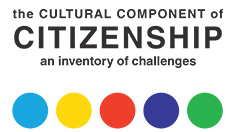What kind of music do you compose and create?
I like pure melodies that don’t need anything else around them to exist. Also, I like experimenting with sounds and harmonies, to examine them from different perspectives, see how they influence a melody line, blend with it or become one themselves.
Since my childhood I’ve been singing, listening and playing old church chorals and feel that these melodies, together with the ones I learned while researching Swedish traditional music, shape my hearing and musical understanding very strongly.
I see myself as a jazz musician and above all an improvising musician and so I always want space for spontanous interaction in my compositions. Especially the moment where the energy of the improvisation meets the form of the composition and fixed parts of it is extremely interesting for me.
At the international level the persistence of gender inequalities and discriminations against women who write and compose music has been denounced. Which discriminations and inequalities did you face in your path as a woman?
Luckily I never really experienced discrimination and inequalities, rather the opposite.
But one thing that I felt sometimes is the surprise of people when learning that I’m a professional musician and even a reed player, a surprise that I think male musicians don’t have to face so often. And it is very noticeable that there are very few female jazz musicians in my surrounding; although I appreciate that the number has been increasing in the last years. During my studies at the University of the Arts there were 1 or 2 years where I was the only female tenor sax player at the Jazz-Institut (with approximately at least 6-7 male tenor sax players).
What do you think could be done to help women working in music business?
For me, things that need to change are, on the one hand the role models and the perspectives in the minds of women and men; on the other hand very practical matters in the environment of female musicians.
I think it is important to start very early, already in schools, to develop an every day life where the gender is not important and where girls do not adjust to “female role models” (that are sometimes nearly unperceptible but still there), to tendentious, (although not ill meaning) comments and to very subtle influences just as a certain expression of surprise. Young girls should be encouraged in following their path and developing enough self confidence.
I guess the situation in different countries and in various music genres is very different. Only experiencing the situation in Germany and speaking as a freelancing jazz musician I think it is very crucial to change the situation for female freelancing musicians and their families – so that it is possible for everybody to combine working as a professional musician and having a family.






